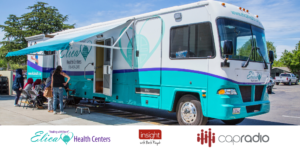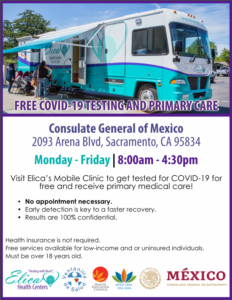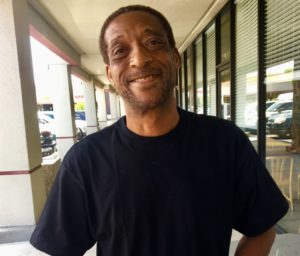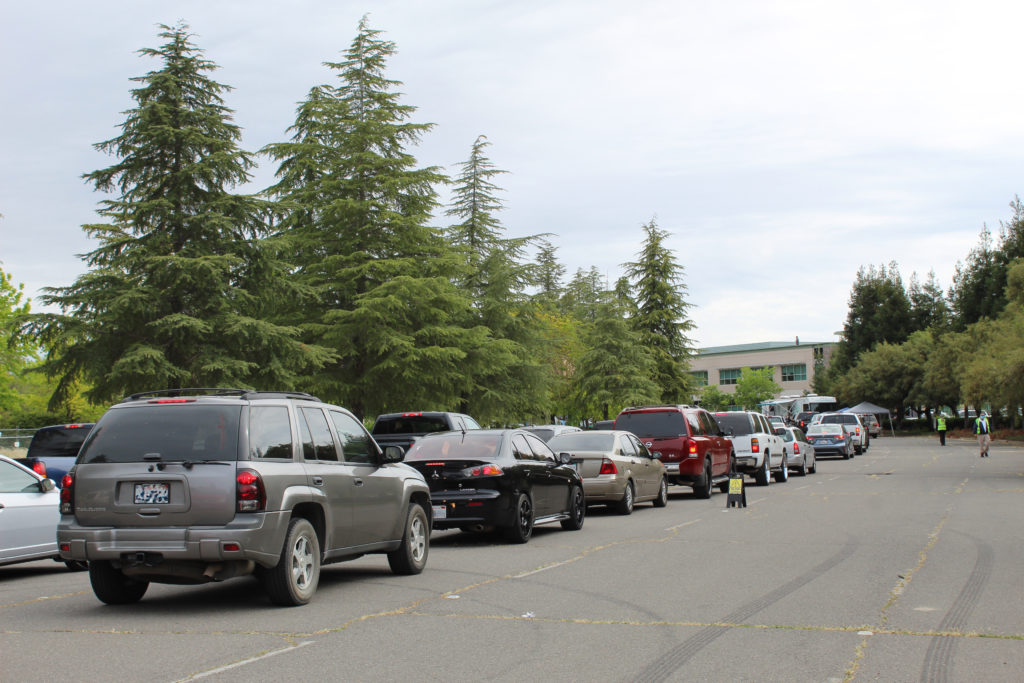
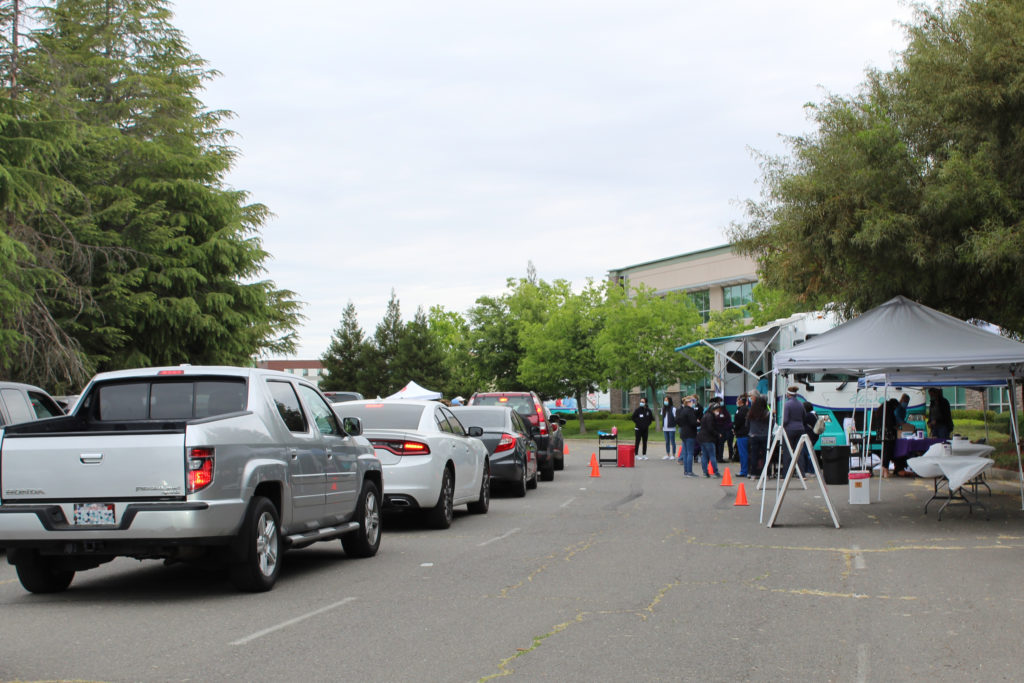
On April 24th, 2021, Elica Health Centers partnered with the Mexican Consulate of Sacramento, UC Davis Health, La Familia Counseling Center, Health Education Council, and Ventanilla de Salud (a program of the Health Education Council) to vaccinate the public.
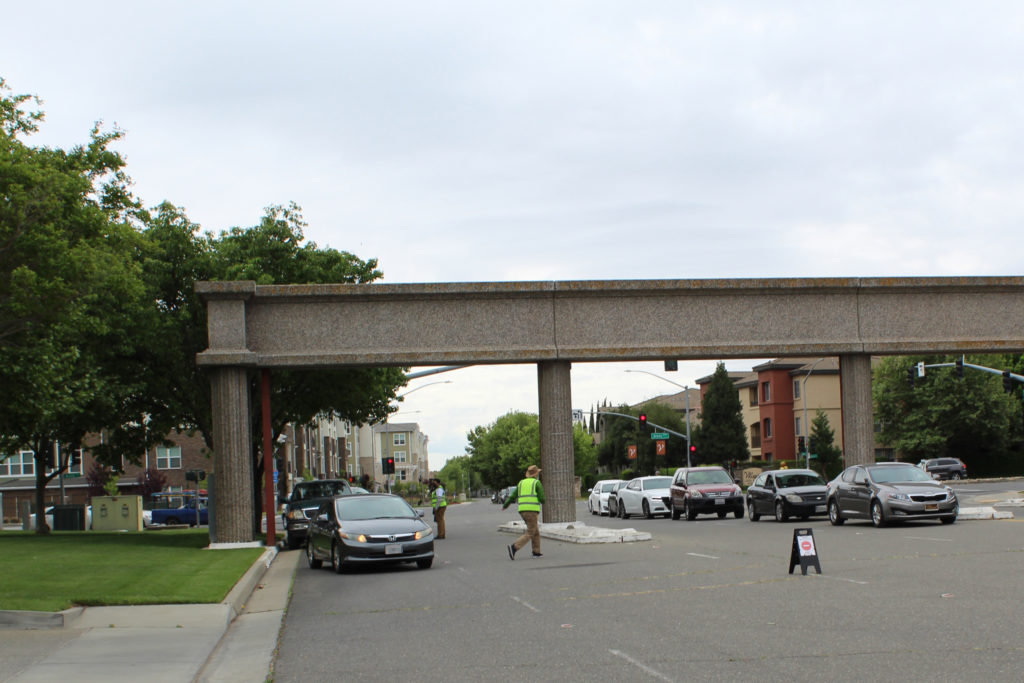
We began slightly earlier than 9:00 am as there were dozens of cars lined up already!
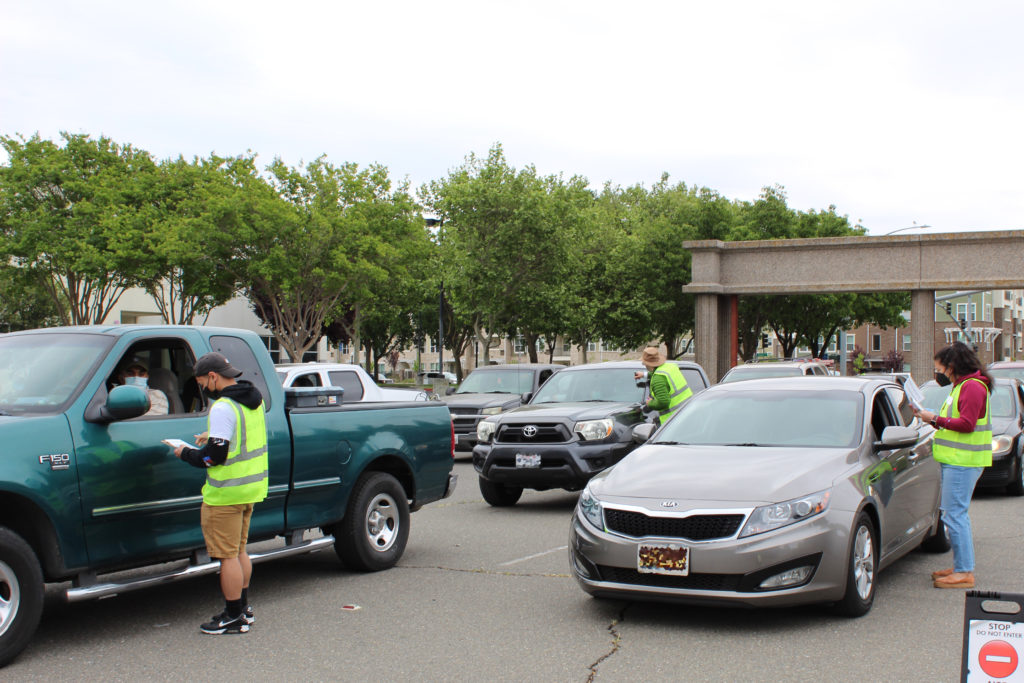
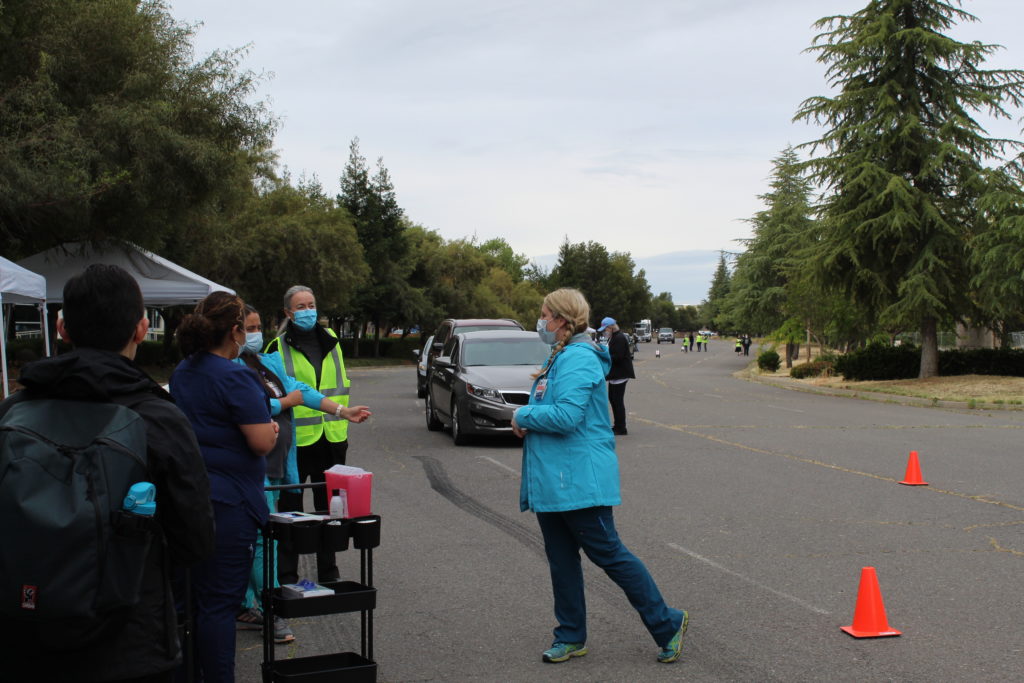
It was a cloudy Saturday morning but everyone shined through the collaboration of teamwork, working together to serve the underserved and vulnerable community.
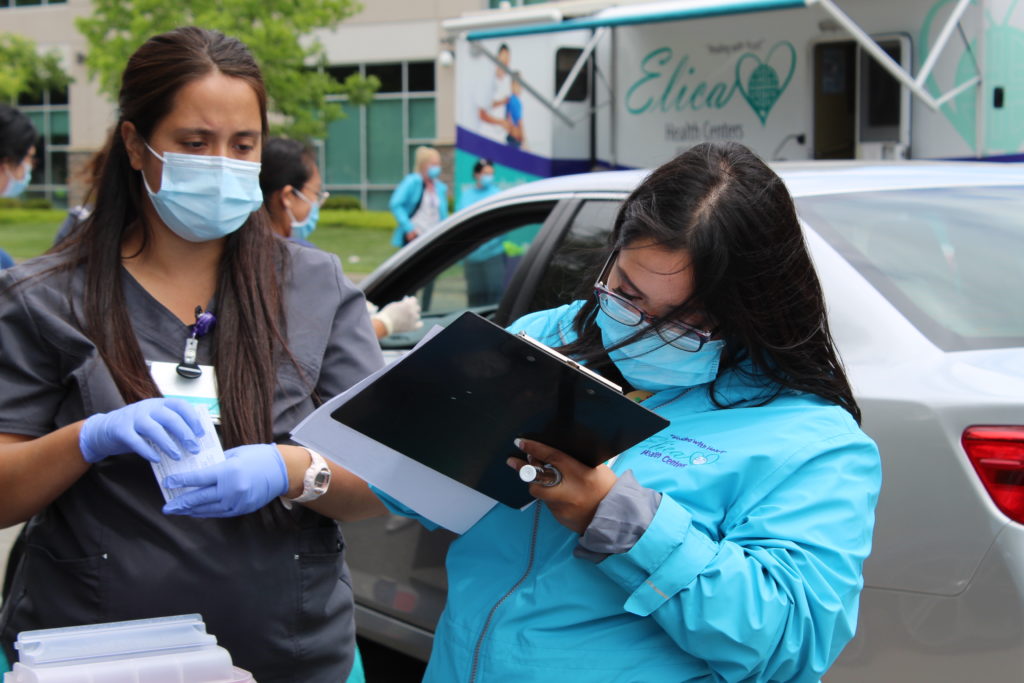
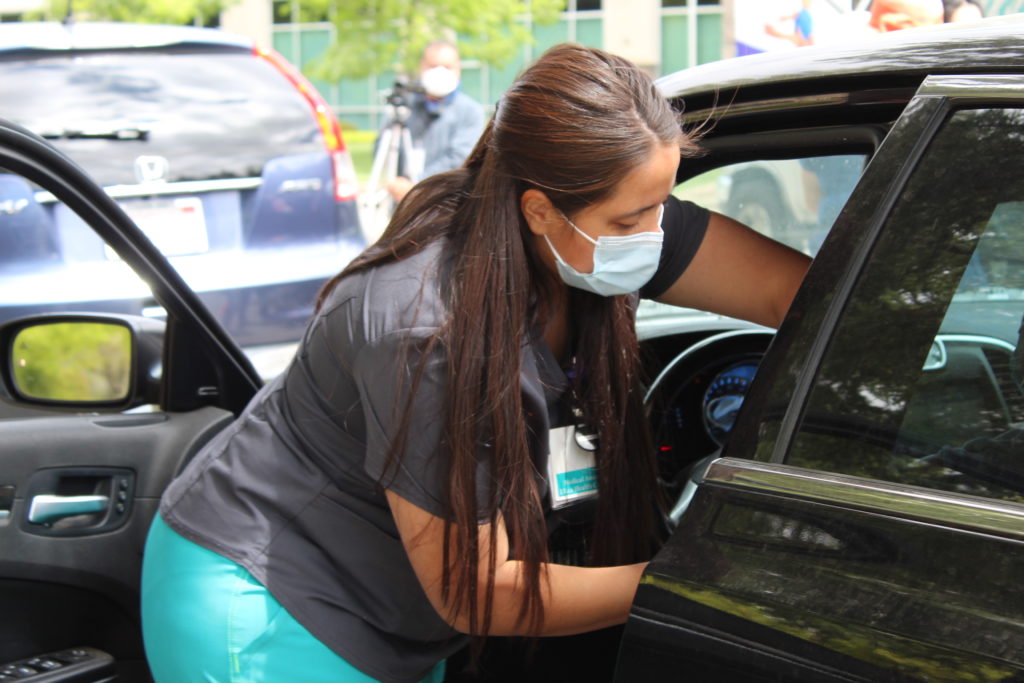
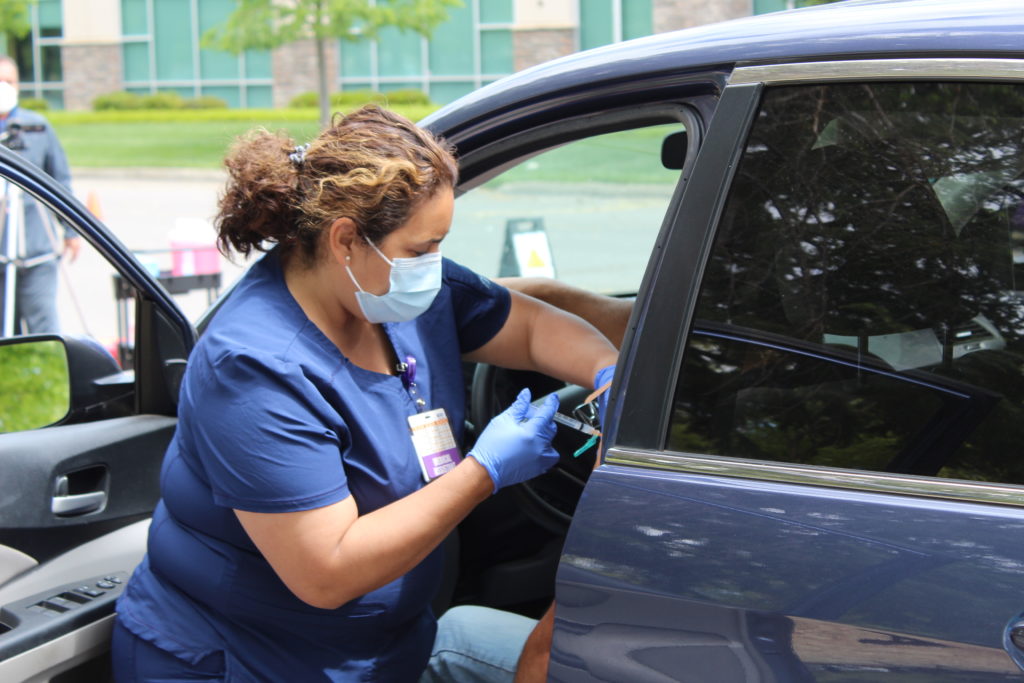
There were over 120 volunteers and 20 Elica staff members present on a Saturday morning. Many woke up as early as 5am to serve the community! We thank the volunteers for giving their time on a Saturday, providing help with vaccinations, paperwork, and guiding the cars successfully through the line.
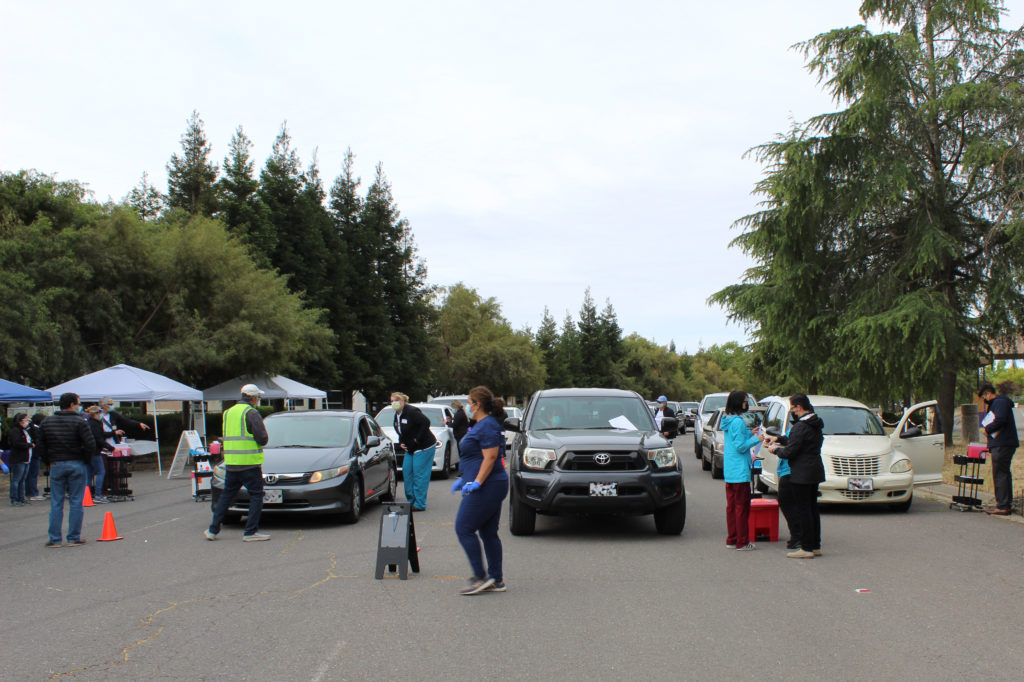
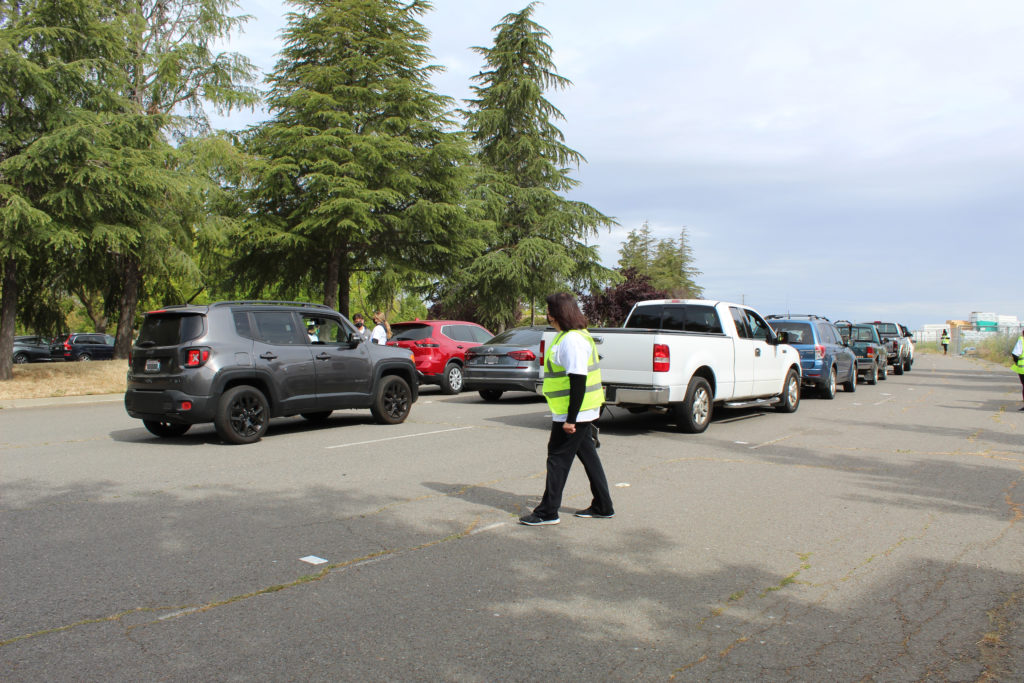
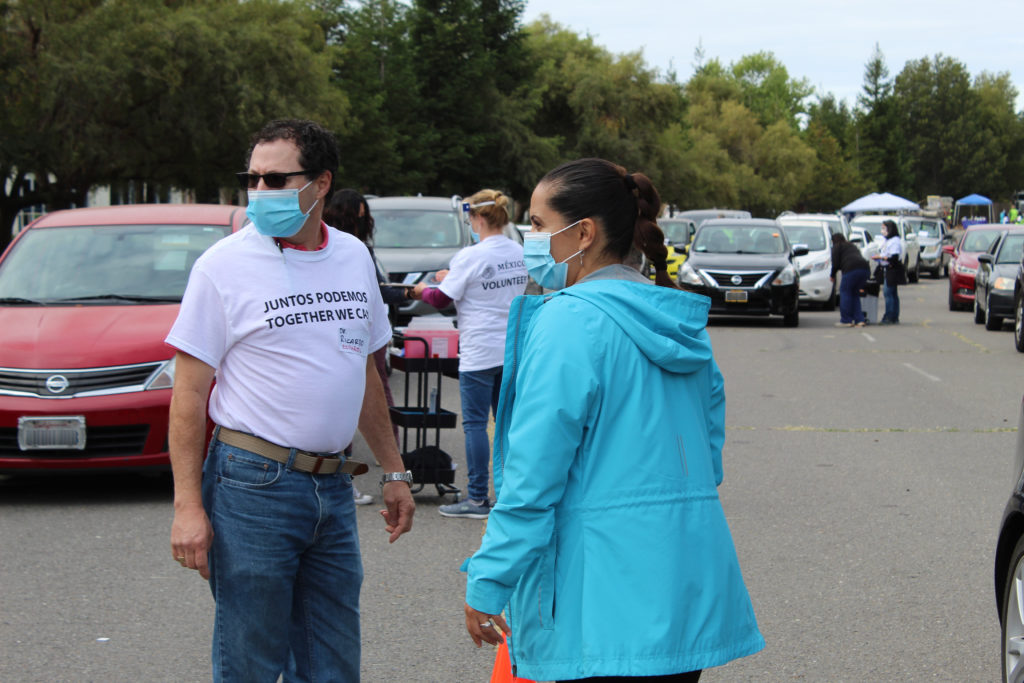
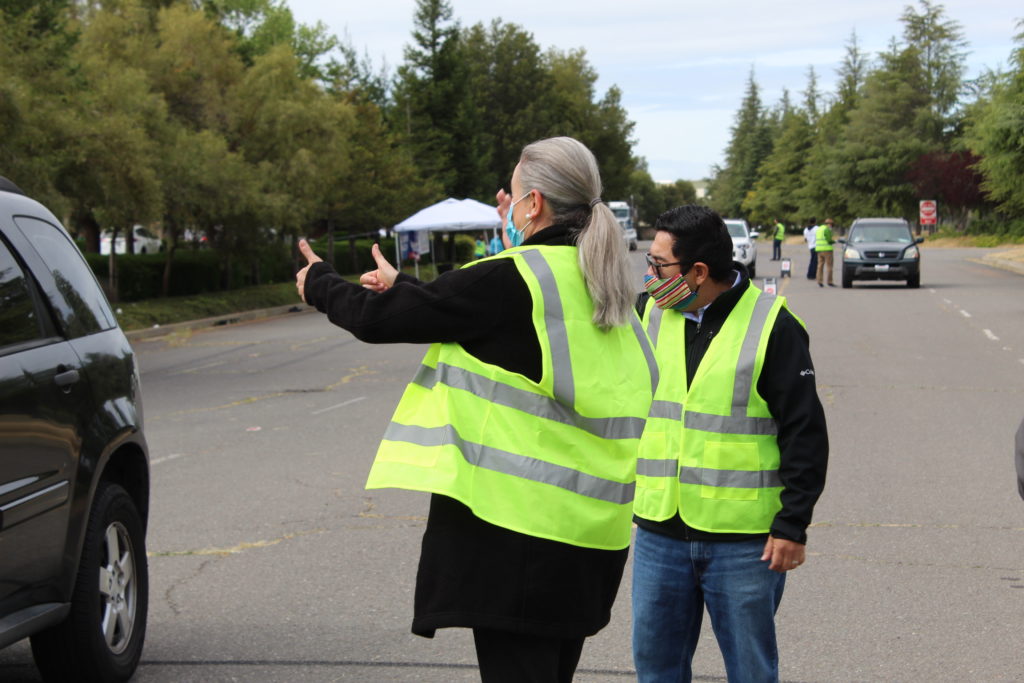
The event was set to end at 1pm, but we continued to serve those who came later in the afternoon. By the end of the event, we provided 347 vaccines for the public.
For lunch, burritos were served from El Burrito Taqueria and the restaurant kindly donated chips and salsa.
If you got vaccinated at this event, please come back at the same time as your first appointment. We will see you again!
Did you see Elica on the news? Click here to view the piece KCRA 3 where our Elica staff were featured. UC Davis Health also wrote a piece where Elica was featured. Click here to read it!
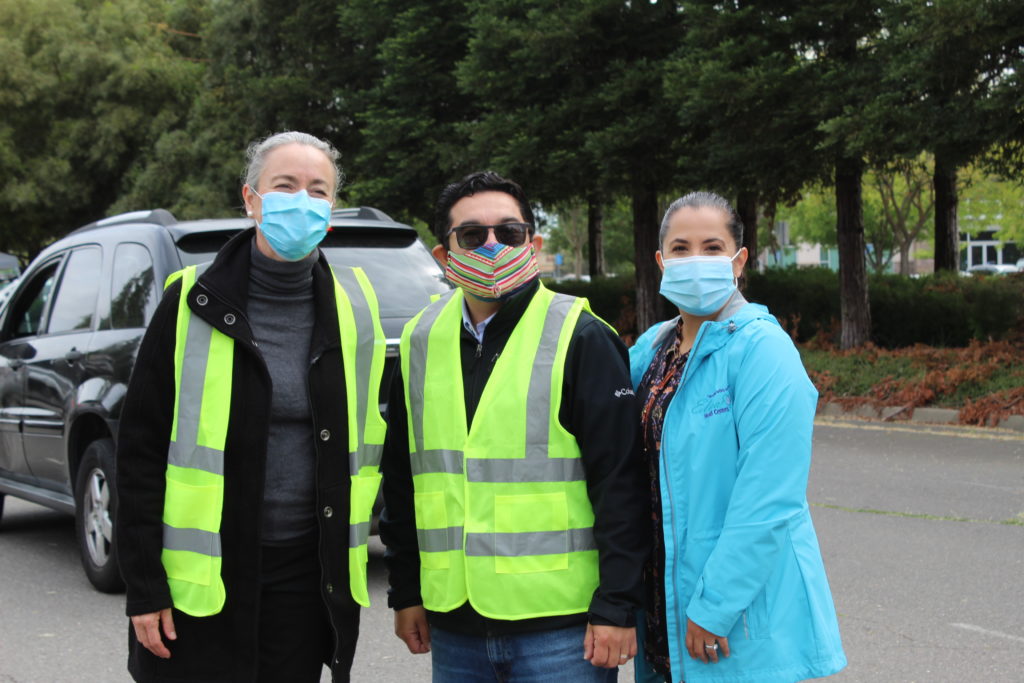
Left to right: Liliana Ferrer (Cónsul General of the Mexican Consulate in Sacramento), Eric Guerra (District 6 Councilman), and Aidé Long, Director of Community Outreach at Elica.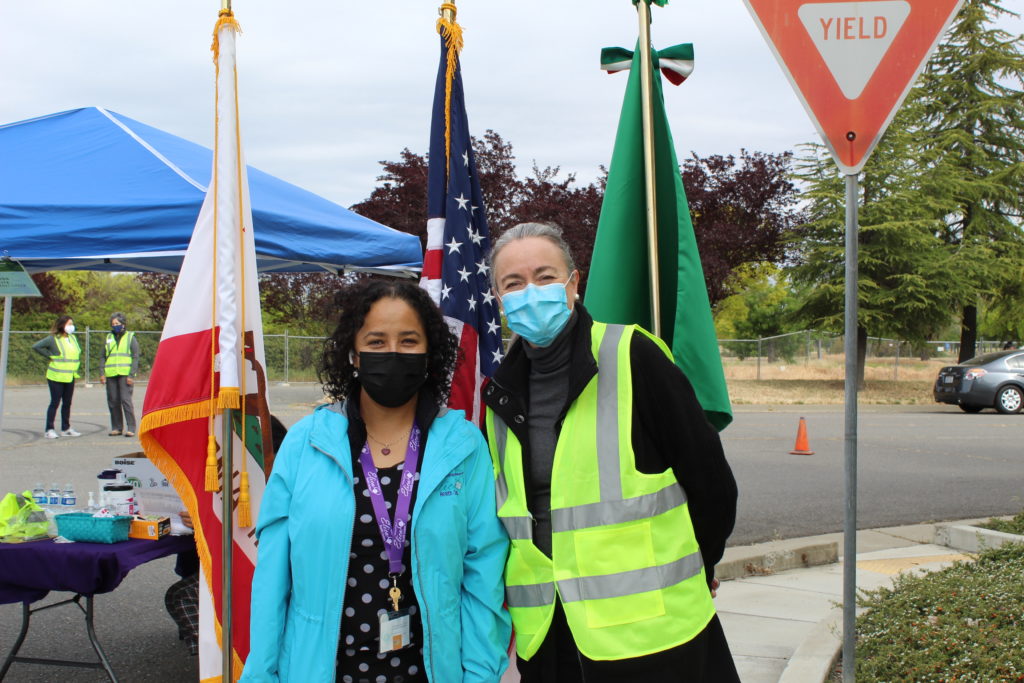
Katia M. (Community Outreach Specialist at Elica Health Centers) with Liliana Ferrer.
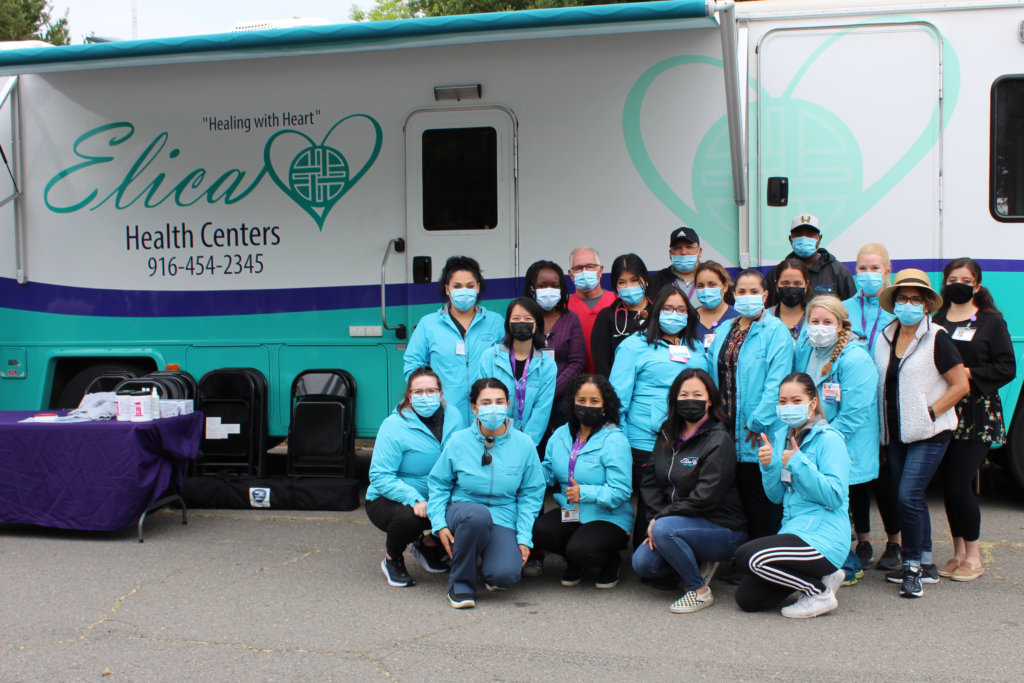
Elica’s Mobile Medicine and Outreach team
